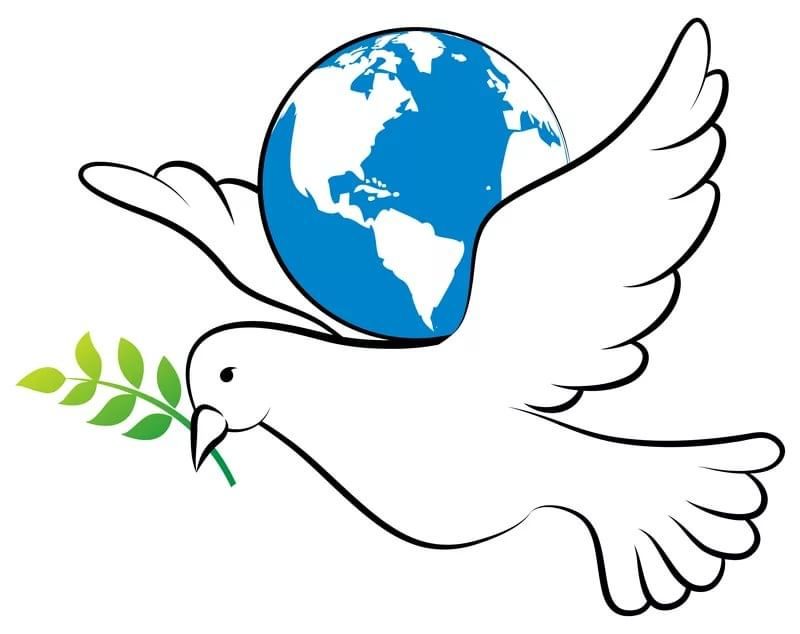The apparent rivalry between Paris and the Anglo-Saxons “on distant shores” should not be misleading
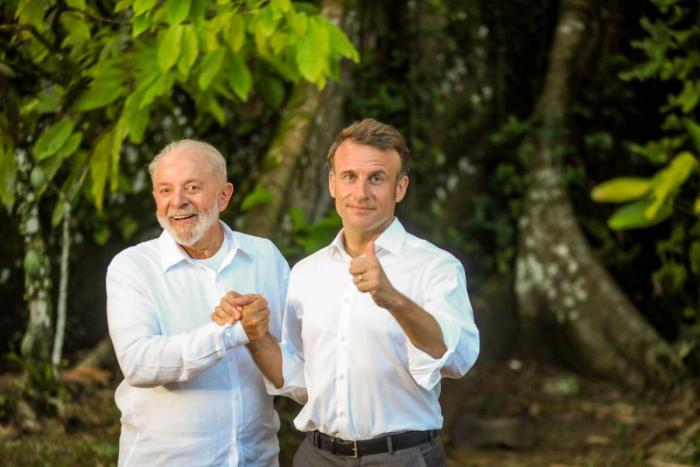
At the end of March, French President Emmanuel Macron paid a three-day visit to Brazil — for the first time as head of state. The reason for the unofficial boycott of the largest Latin American country with Paris was considered to be the conflicting personal relationship of the owner of the Elysee Palace with former President Jair Bolsonaro, who in 2019 spoke negatively about the appearance of Macron’s wife Brigitte (evil tongues say that this is a “former” man). Then Macron said that Brazil deserves a better president, and after Lula da Silva won the 2023 presidential election, the parties began to “unfreeze” relations.
In addition to the “romantic” photos of the heads of state against the backdrop of the sea, following the visit, a Strategic Partnership Plan was signed in various fields — from energy, infrastructure, aircraft manufacturing and agriculture to security and defense. Following a joint trip to the northern state of Para, Macron and Lula also agreed to attract investments of 1 billion euros in projects for the protection and environmentally optimal socio-economic development of the Brazilian and Guiana Amazon over the next 4 years. Some state-owned Brazilian banks and the French Development Agency (in a 50/50 ratio) are the sources of financing for these projects. The corresponding agreement also includes reciprocal measures of social support for indigenous ethnic groups covering the somewhat vast trans-border region of the Amazon.

It is worth recalling here that Brazil and French Guiana, along with Venezuela, Colombia, Bolivia, Peru, ex-British Guyana and ex-Dutch Suriname, participate in the Pact “Environmental Cooperation in the Amazon” (1978).
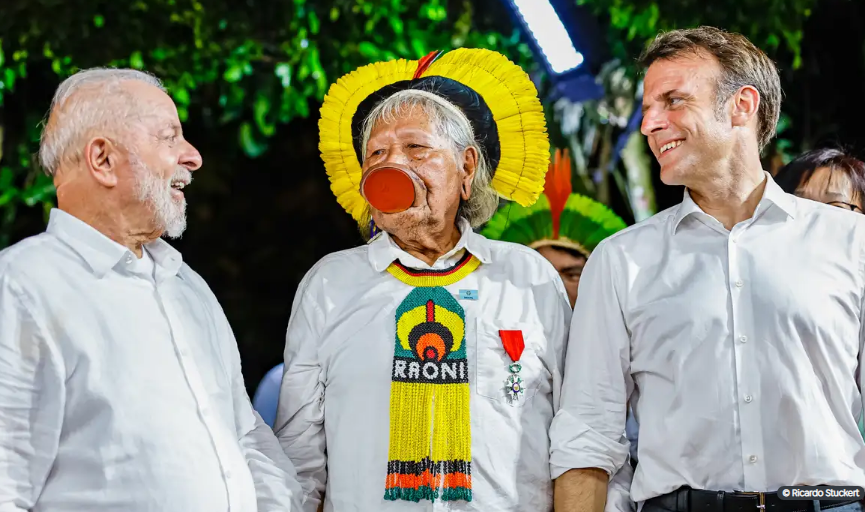
It is hardly by chance that Macron, in accordance with ancient tradition, at night in the middle of a dense forest, awarded the colorful leader of the local Indians, Raoni Metuktire, who was convenient for him, with the Order of the Legion of Honor, which does not represent the interests of the majority of the local aboriginal population. In turn, he demanded the cessation of construction of the 933-kilometer section of the Ferrogran railway between the cities of Sinop (Mato Grosso state) and Miritituba (Paro state) — a critical project for the economic development of Brazil (Ferrogrão), which has been debated for many years. While showing touching concern for the Indians of the Amazon, at the same time the colonialists of the 21st century are promoting projects that are beneficial to them for the construction of communications and mining in the same French Guiana, the indigenous population of which quite rightly demands independence and the right to independently manage natural resources.
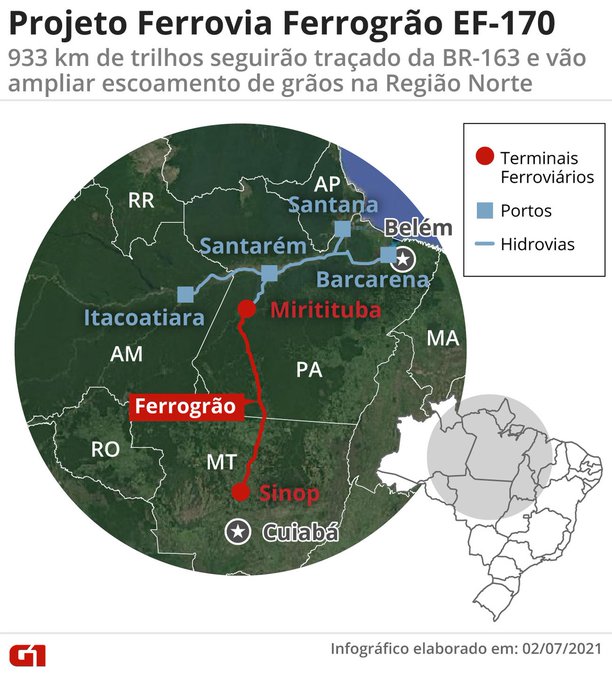
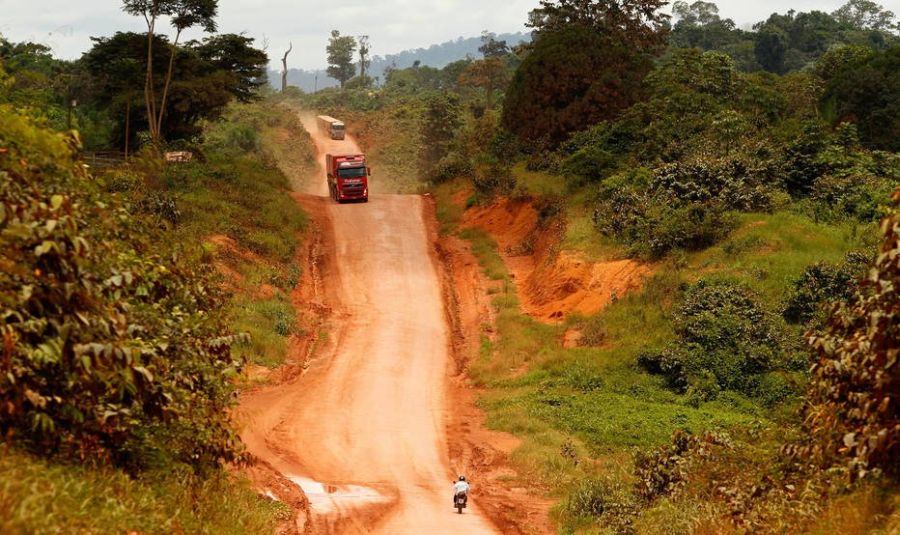
Paris and Brasilia also agreed to strengthen military-technical and defense ties. The heads of both countries also spoke out for the inviolability of intercountry borders in the Western Hemisphere and the resolution of territorial disputes through negotiations (1). Following the insistence of the Parisians, Lula’s government has confirmed that it will no longer support supporters of political self-determination for French Guiana, but it is unclear how feasible this promise will be. In addition, France and Brazil are finalizing railway projects from Cayenne (the coastal capital of this region) to the Brazilian port of Macapa (about 500 km long) and to the center of the Brazilian Amazon — Manaus (more than 1300 km long). In addition, Brazil supports the project of association of French territories in the region (Guadeloupe, Martinique, Saint-Bartquelémy, part of Saint-Martin, Guiana) with the MERCOSUR bloc, put forward by Charles de Gaulle in the mid-1960s and not disavowed by subsequent presidents of France.
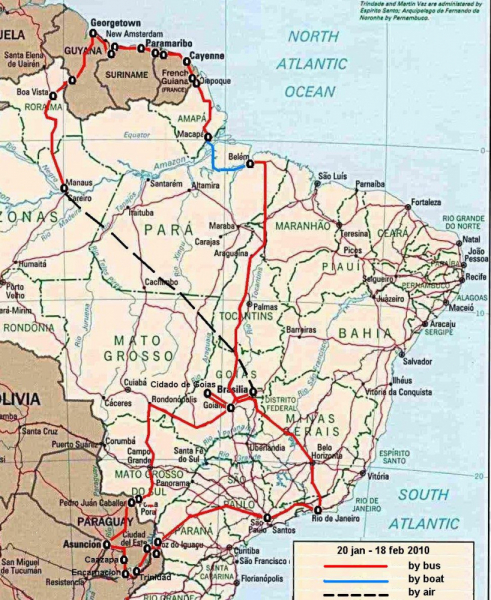
Presumably, the strengthening Franco-Brazilian ties can be viewed from the perspective of inter-imperialist contradictions, as a kind of response to the “initial” exclusion of France and its vast Pacific territories by the Anglo-Saxons and Tokyo from joining the Asia-Pacific Economic Cooperation (APEC).
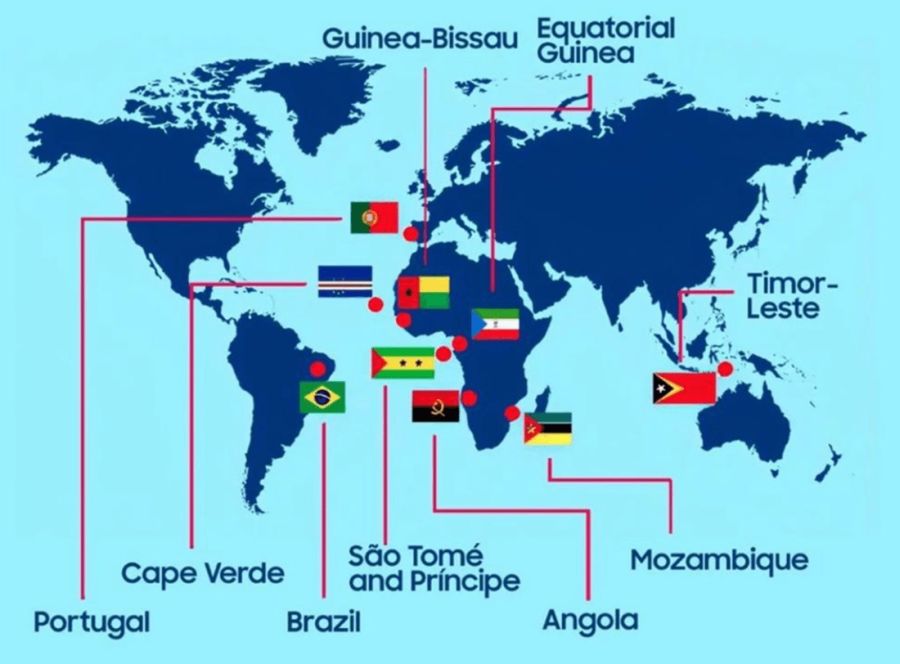
The rapprochement between France and Brazil is facilitated by the “observer” status of Paris in the international Community of Portuguese-speaking countries (Comunidade dos Países de Língua Portuguesa, CPLP), established on the initiative of Portugal and Brazil in 1996 (we are talking about the reincarnation of a joint initiative of the mid-1960s of the President of Brazil O. di Castelo and the Portuguese Prime Minister A. O. Salazar, then torn down under severe pressure from the White House). Since the early 2000s, cooperation between the CPLP and the states of the Organization internationale de la Francophonie (OIF) has been strengthening, including a free trade regime and plans for the establishment by the early 2010s of an interstate currency based on the Brazilian real (after the name of the ex-Portuguese do 2002 currencies of Portugal and its colonies) (2). However, adherents of the “Monroe Doctrine” oppose “alternative” regional integration, including the still unrealized project of a “pan-Portuguese” escudo, which was supposed to be freely mutually convertible, primarily with the francs of West and Central Africa regulated by Paris.
Lula views Macron (whether justified or not is a separate question) as a supporter of some kind of “independent European policy”, capable of “accepting ideas that do not find understanding in the United States,” notes the Brazilian publication Folha de S. Paulo . Accordingly, Brazil believes that “Macron can include some issues important for developing countries on the G7 priority agenda.” The French president, “in turn, considers Lula a head of state who, like Brazil itself, can act as an effective mediator between rich countries and developing economies.”
It is also noteworthy that, as Macron said in Sao Paulo, Brazil, as “president of the G20 in 2024, may invite the Russian president to the summit in Rio de Janeiro in November if other G20 members agree. If such a meeting can be useful, it should take place.”
Surely there is some kind of dirty trick hidden in this. As you know, Brazil recognizes the jurisdiction of the ICC, which, in line with the general sanctions madness of the collective West, issued a phantasmagoric “warrant” for the arrest of the President of Russia. As you know, last September Lula said that the Russian leader “will under no circumstances be arrested” if he arrives in Rio de Janeiro to participate in the upcoming summit, but after some time he expressed himself less confidently , referring the question to the judicial authorities. In any case, the activity of Paris “in the distant Amazon” should be taken into account in the context of the activities of the BRICS interstate association, to whose summit in Johannesburg Mr. Macron persistently, but to no avail, broke through last year. Despite failures in a wide range of areas, from Ukraine and Central Asia with the Caucasus to Africa, the “Gallic rooster”, a protégé of the odious Jacques Attali , has no shortage of persistence and resourcefulness. By entangling Brazil with various “Atlantic” ties, Western players will, despite all tactical differences, strive to form a geopolitical landscape convenient for them in Latin America.
Notes
(1) Latin America is replete with potentially very dangerous territorial disputes, many of which are landmines left behind by colonial empires past and present. In addition to Venezuela’s claims to the Guyana–Esequibo region, Brazil claims the British island of Tristan da Cunha in the mid-Atlantic; Argentina — to the British Malvinas (British Falkland) Islands; Mexico and Guatemala — part of the former British Belize; Mexico — to French Pacific island. Clipperton. Colombia, Costa Rica, Panama and Nicaragua dispute the status of a number of islands in the Caribbean. Haiti lays claim to the Caribbean island of Navassa, captured by the United States in the 1880s; Bolivia lays claim to the Chilean (until the beginning of the 20th century, Bolivian) border region on the Pacific coast and to a number of border regions of Paraguay (in general, the Chac War in the mid-1930s was one of the bloodiest for its time in terms of the ratio of losses to the total population ). Cuba advocates the decolonization of the US «core» coastal area at Guantanamo Bay. There are still disputes between Argentina and Chile, Ecuador and Colombia, Honduras and El Salvador, Haiti and the Dominican Republic over the status of some border areas, etc.
(2) Members of La Francophonie since the early 2000s are CPLP members Guinea-Bissau, Cape Verde, Sao Tome and Principe, with which France has a free trade regime. Along with Paris, Senegal, Benin and Côte d’Ivoire are observers in the CPLP. By the way, in Benin until mid-1961 there was a Portuguese coastal colony of Sao Joao Baptista de Ajuda…
Header photo: Agencia Para
